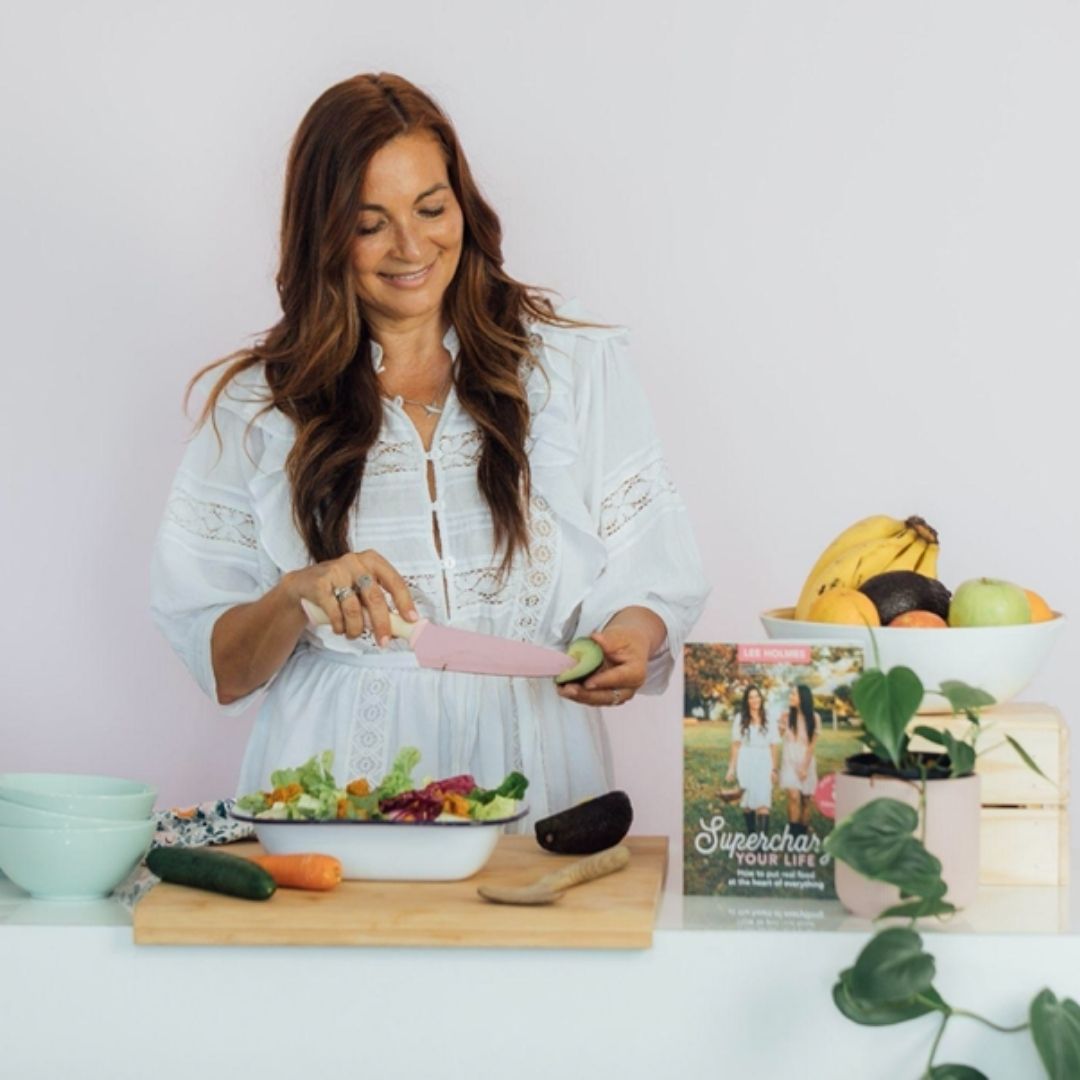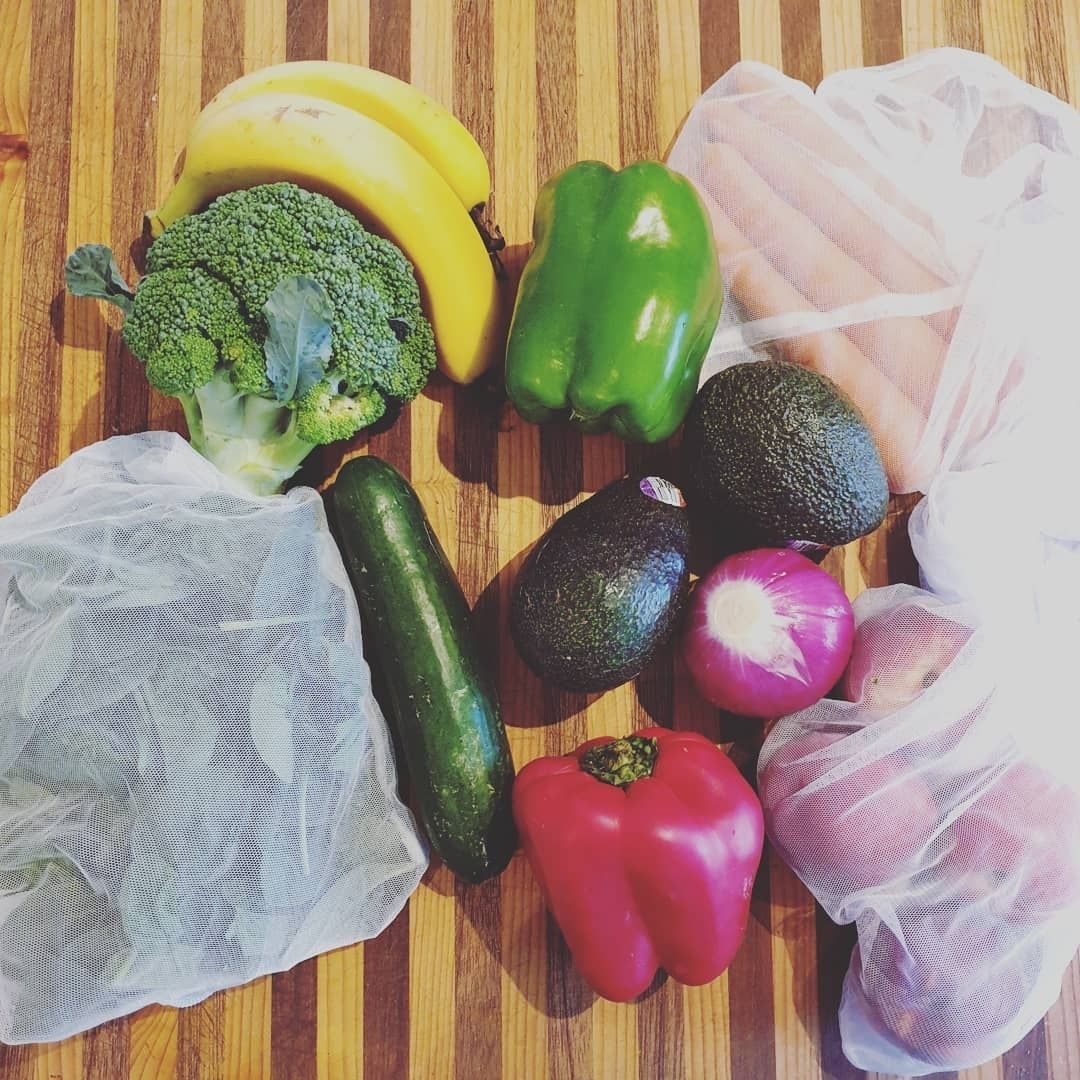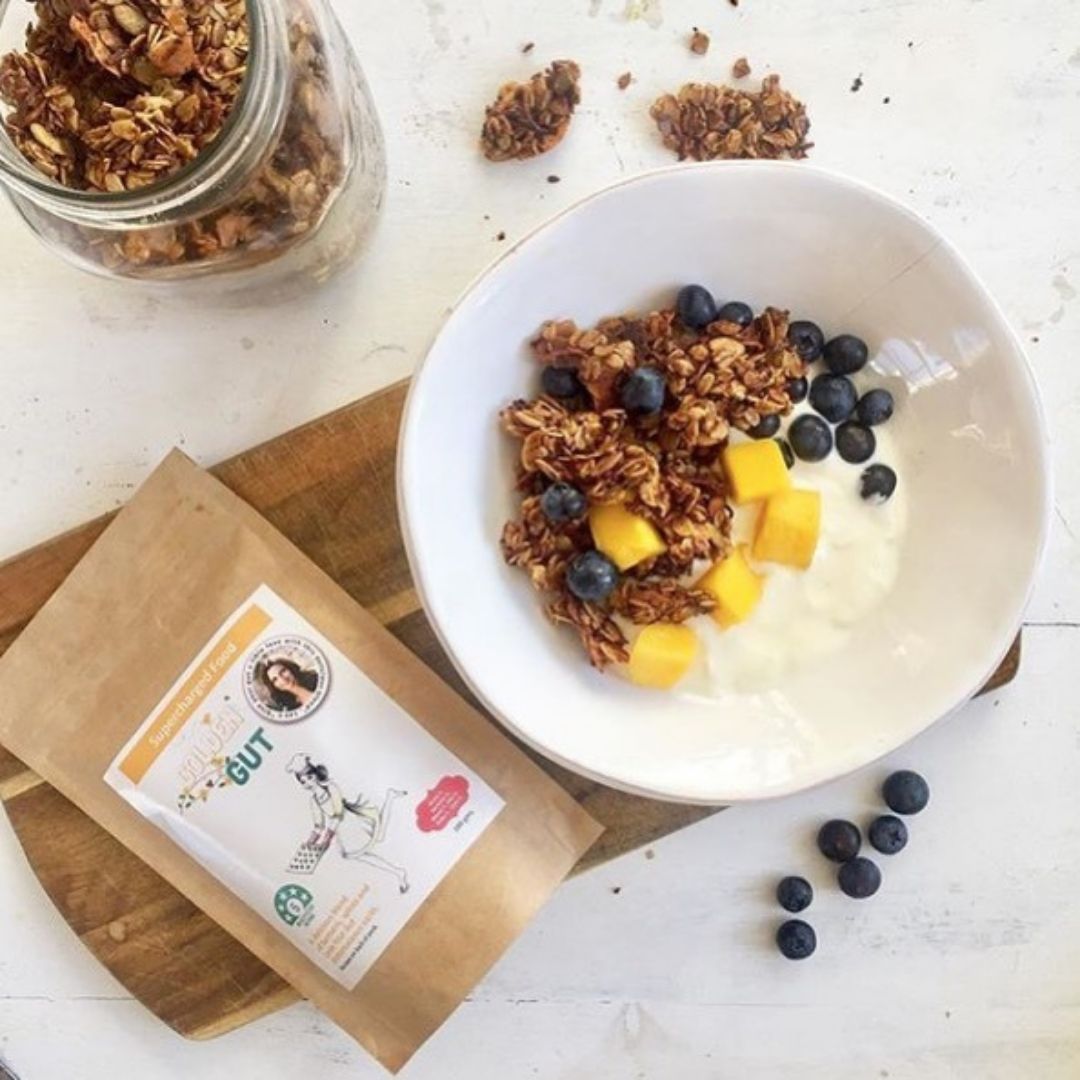Meet Lee Holmes — Clinical Nutritionist, Author and Founder of Supercharged Food. Lee is sharing her top tips to ensure good gut health, following a vegan diet — read along!
If you’re a vegan or, like me, on the path to veganism by ever-reducing your non-plant diet, you’re witnessing the arc of history bending towards you. More and more people are following a 100% plant-based diet and natural food, nutrition and personal care industries are coming up with better, closer-to-nature options. (Shoutout to communities and stores like Flora & Fauna for sourcing and offering a curated and studied array of all-vegan products). It’s becoming very easy to be vegan.
Vegan Diet = Good For Gut Health
The first thing to acknowledge is that a vegan diet is good for all of you, including your gut. Studies show the beneficial nutritional effects of veganism, especially compared to the manifold issues of animal-based diets (on human health and planet health). However, veganism is not without some associated tweaks for our gut, that require addressing and modification to enjoy the full benefits of plant based eating.
In my clinic, I’m seeing more vegans than ever. This, I’ve determined, is more to do with maths than the diet itself. It’s just a fact in our society that more people are turning to veganism for a range of different reasons. Yet every vegan is different. Every diet is different. Every gut is different. In this article I’ll focus on the benefits to your gut but also the broader issues I’ve come across for vegan clients and the successful methods we’ve devised to treat them.


A Very Diverse Gut Microbiota
A flourishing, or a ‘loved’ as I like to call it, gut environment is a diverse one. The good news is that plant-based diets are high in fibre and polyphenolics are “also associated with a diverse gut microbiota, producing metabolites that have anti-inflammatory functions that help manage disease processes.”
Vegans have a good number of options to shower their guts with love. The opposite can be the case, where meat-eaters have to remedy the effects of hard-to-digest foods on their guts. ‘Eating the rainbow’ is something I employ and often suggest this to my clients (and anyone else who will listen).
A multi coloured diet approach ensures every day you’ll have a beautiful array of natural colour in your meals but also, these colours denote different phytonutrients, all helping to diversify the gut environment and help it function effectively.
Gut-Friendly Vegan Diet
Some of my favourite, high rotation colourful vegetables that you can include as part of a gut friendly vegan diet are:
- Red: capsicum = a source of flavonoids, iron and vitamins A and C, which increases the absorption of iron from the gut
- Orange: sweet potatoes. The fibre and antioxidants in sweet potatoes are advantageous to gut health
- Green: avocados (especially in smoothies, yum). This superfood is packed with fibre and essential nutrients, such as potassium — promoting healthy digestive function
- Brown: mushrooms. Mushrooms act as prebiotics to stimulate the growth of gut microbiota
- White: daikon radish. Raw daikon contains protease and amylase, helping digest proteins and carbohydrates
- Purple: blueberries. Rich in polyphenols, which have an antimicrobial and antioxidative effect
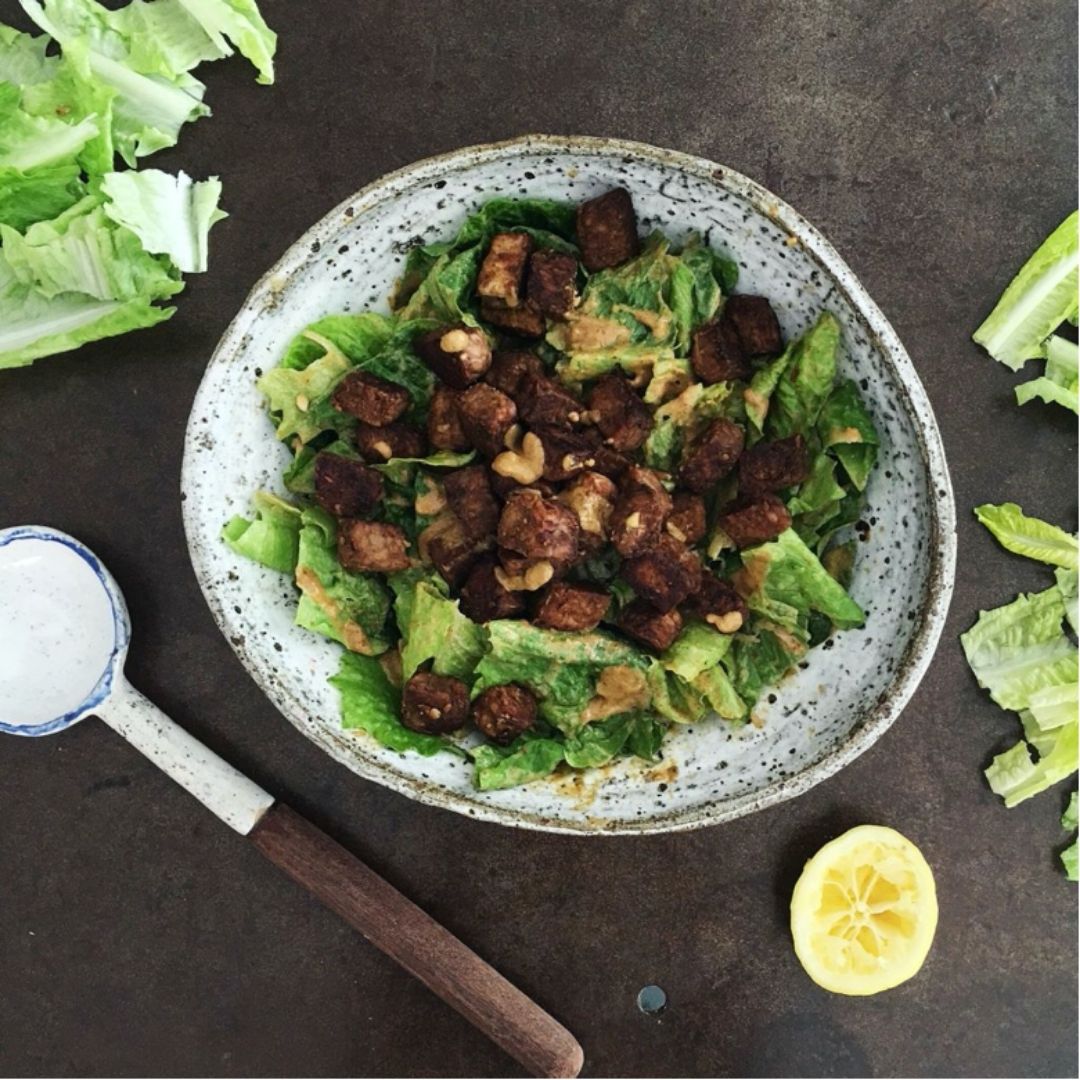

A Very Good Source Of Probiotics For Vegans
Many readily available supplementary sources of probiotics are not vegan, they are derived from dairy. Fermented vegetables are your vegan way to repopulate your microbiota with lovely probiotics. Add more fermented foods to your diet if you are a vegan looking to improve gut health.
Looking for inspiration?
Try my delicious Vegan Caesar Salad Recipe.
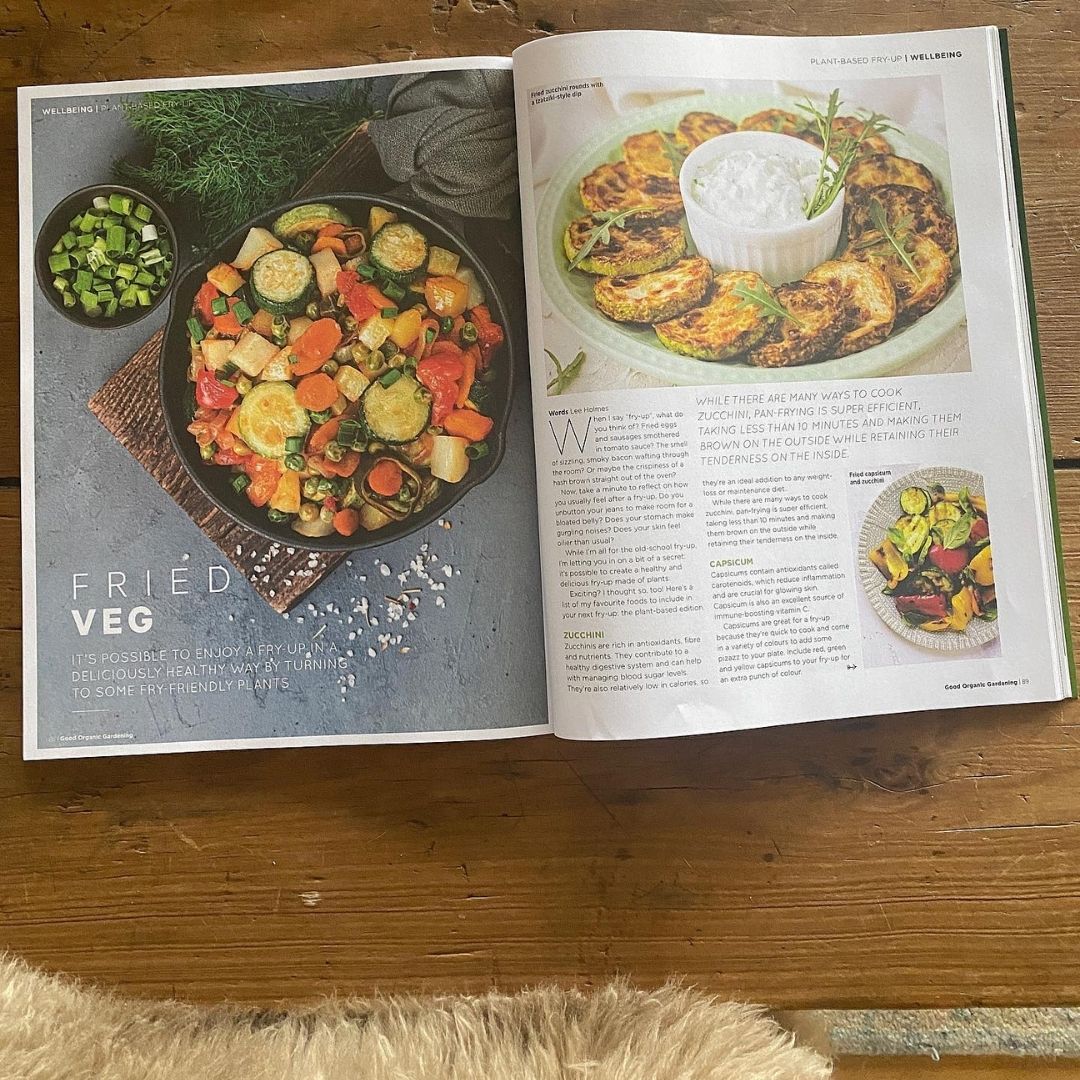

Very Boring Bloating
Bloating is something many vegans are all too familiar and bored with too. Abdominal tightening or pressure can be a by-product of a high fibre diet synonymous with a diet high in fruits, vegetables and legumes. Bloating is often the cause of a number of other symptoms like abdominal pain, gas, burping, stomach rumbling or gurgles. But bloating is treatable through adjusting your nutritional intake, your diet choices.
Meal planning is an incredible way to balance your fibre intake. Instead of buying what looks good, start choosing foods that treat your body well. As you adjust to healthy levels of fibre, you’ll start to feel better, and your taste buds will adjust to enjoy healthier foods. Be mindful of “fake” vegan and soy products which can contribute to bloating. Pay attention to how much you chew and take your time using mindful eating.
Vegan-Friendly Foods
Nutritional Yeast contains vitamin B12, a Vitamin that can be difficult to obtain on a vegan diet. Vitamin B12 helps create DNA, and a deficiency can cause weakness and fatigue.
Protein is necessary for the health of our hormones, muscle, gut and skin health. Legumes offer an excellent source of plant-based protein which brings satiety.
This gut massage isn’t specifically for vegans but a brilliantly simple way to gently fire your digestion, treat bloating and just feel calm.
Enjoy these tips and remember a happy gut = more energy, a healthy nervous system and a happy mood.
Head to our Food & Health category and check out the blogs below to learn more about the incredible health food products, your body will love!
The Benefits Of Green Banana Resistant Starch
5 Superfoods To Boost Your Inner Health, Outer Beauty & Overall Wellbeing!
Achieve Your Weight Loss & Muscle-Building Goals — With Proganics!
